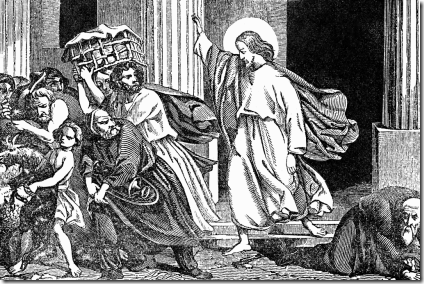 The 2017 word of the year for the Macquarie Dictionary was….
The 2017 word of the year for the Macquarie Dictionary was….
Milkshake duck.
If you’re scratching your head, that’s okay. What is a milkshake duck? It’s a person who was wildly popular on social media but then later was revealed to be a type of villain. The phrase comes from an Australian cartoonist who fictionalized a “lovely duck that drinks milkshakes” but then gets canceled because we find out the duck is racist.
Milkshake duck is evidence that social media is a weird place. You can go from hero to villain in only a matter of moments. I’ve had my own experience with this a time or two. Social media is a wild place where someone could even post a Scripture passage and then get mauled. Questions are often insincere and meant as traps rather than for information.
Yet, social media can also be a place where good can be accomplished. It’s tough to navigate because on occasion we’ll get so accustomed to the negative flow that sincere questions are read with snark.
Tuesday of Holy Week is Jesus’ day on social media. He’s teaching in the temple but rather than authentic interaction he ends up getting a ton of silly questions that aren’t real questions—they are just meant to trap him.
They’ll Listen to Him…
When I preached on Mark 12:13-37 a few years ago I struggled with how to make contemporary application. But when I saw these words in Mark 12:6 I was gripped:
“They will respect my son”
It’s heart breaking. It’s words in the parable of the tenants of the father sending his son to the people. “If I send bone of my bone and flesh of my flesh maybe they’ll respect him and listen”. But they say, “This is the heir. Come, let us kill him, and the inheritance will be ours.”
The religious leaders new exactly what this parable meant. They were rejecting God’s own Son. That’s why they wanted to see Jesus thrown in prison. They wanted him done with, because they understood he was talking about them. He’s the son that they aren’t listening to—they’d rather kill him than listen.
How do you get to that spot? Especially if you are a religious leader. You’ve given your whole life to studying God’s Word, to being pleasing to God and then you end up saying, “here’s the son—let’s kill him.” How does that happen?
They recognize the Son. They see that he comes from God but they don’t like him and so they want to have him done away with. What is happening is that their foolish hearts are being darkened. They actually think they can trap Jesus because they’ve convinced themselves that they are more “in the know” than the Son of God. Their quest isn’t about finding truth—it’s about escaping God’s ownership of them. It’s unbelieving doubt
Barnabas Piper says it well:
When unbelieving doubt poses a question, it is not interested in the answer for any reason other than to disprove it. Unbelieving doubt is on the attack. It is much more interested in the devastating effect of the question itself to erode the asker’s belief and hope in what is being questioned. The asker is not asking to learn; she is asking in order to devastate. She does not want to progress to an answer. She wants to show that there is no answer. Unbelieving doubt is not working toward anything but merely against belief.
And this is the kind of thing we see played out on social media, in the news, etc. on a daily basis. Truth doesn’t matter as much as “gotcha” questions.
Tuesday of Holy Week is consumed with unraveling all these “gotcha” questions. Jesus masterfully navigates the questions and pulls everyone back to the kingdom of God. This too is part of His mission of making all things new. On Monday he shows his intention to rescue the vulnerable. On Tuesday he fights for truth, wrestling it from the hands who would dice up truth and then spread it in halves for their own benefit.
The Good Question in the Midst of Noise
I think there is one more person that Mark wants us to notice in this narrative. In the midst of all these dumb “gotcha” questions is a scribe who actually asks the important question. “What is most important?”
There is something a little different about this scribe and Mark clues us into this by his use of the word “hearing”. It’s often used of one who is hearing with perception and not just hearing with the ear. There is sincerity with this scribe. He wants to know—what is the most significant—which commands supersede them all.
Jesus answers by combining Dt. 6:4-5 (the Shema) with Leviticus 19:18 and essentially says the Law comes down to loving God completely and loving others perfectly. His answer puts him in a unique camp because there is no evidence that before Jesus these two commandments were combined. Jesus, as usual, is in his own camp.
The scribe affirms what Jesus says and even adds a bit of his own flavor saying that Jesus is correct that love is more important than sacrifice and burnt offerings. Which is essentially saying that relationship matters more than the religious practices and rituals of his people. And Jesus tells this guy that he is not far from the kingdom. He’s not saved yet. He doesn’t fully understand that to love God means to embrace Jesus. But he is at least walking down the correct road.
Thankfully, Jesus is able to sift out the sincere questions from the trap questions. That is good news. And it’s good news that he welcomes these type of questions. Ask them.
Truth matters.
That is what Tuesday of Holy Week teaches us.


